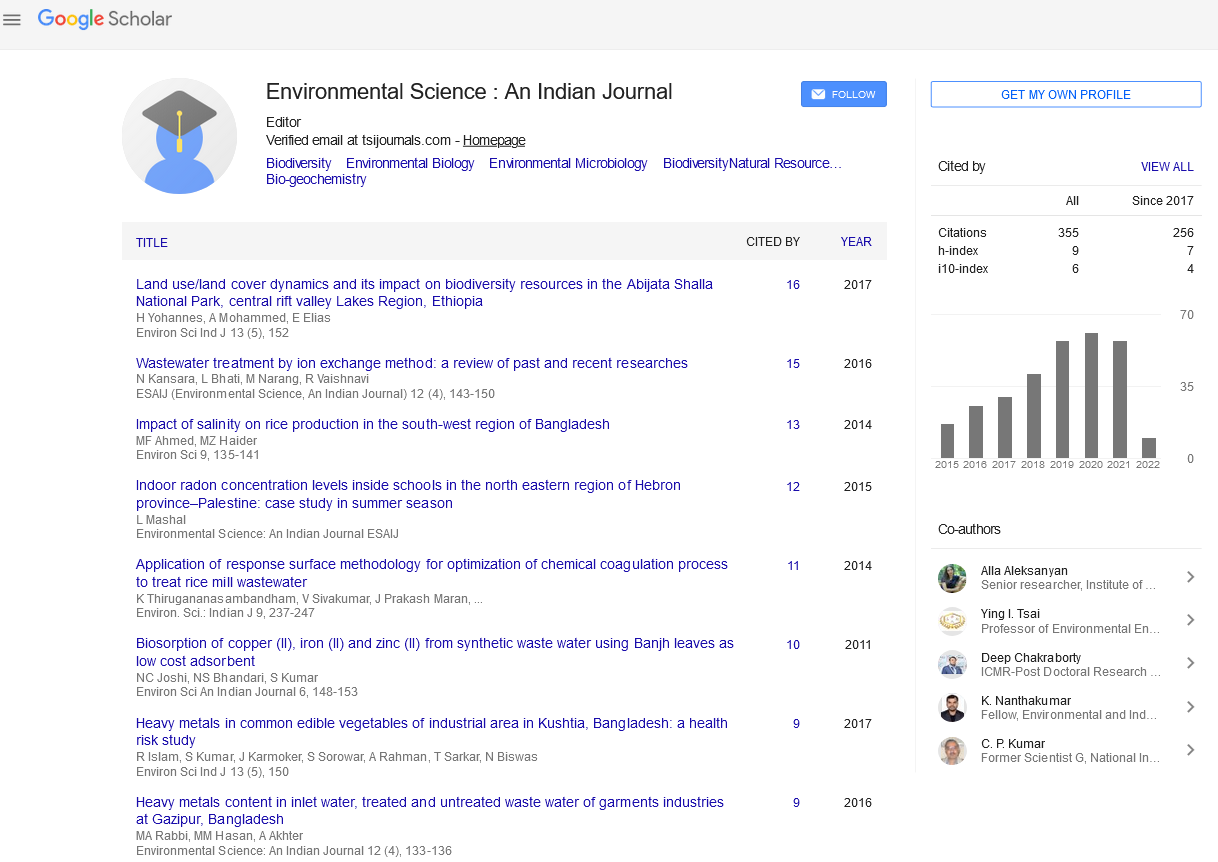Abstract
Degradation of organic pollution in communal waste water by aerated lagoon system: Case of the waste water treatment plant of Oujda (Morocco)
Author(s): A.Rassam, A.Echchelh, A.Chaouch, M.Bourkhiss, B.Bourkhiss, A.El MalhiInMorocco, as in all developing countries, sanitation and sewage treatment constitute certainly one of the biggest environmental problems. The lack of public network, lack of waste water treatment plants, and absence of control and of environmental awareness contribute to the spread of diseases, the degradation of landscape and the contamination of surface and groundwater. Wastewater is considered the primary sources of pollution for the ground water and surface water. Wastewater treatment by aerated lagoon is considering one of the important economic with high performance solution in Morocco. The purpose of this study is the evaluation of the system treatment in term of removal efficiency. This study attempts to highlight the factors leading to the adequate performance ofWWTP Oujda in removing organic matter, solids and nutrients. The efficiency of the different stages of the treatment process. Collection and analysis of data revealed a constantly removal efficiency of chemical oxygen demand (COD), biochemical oxygen demand (BOD5), total suspended solids (TSS) and nutrient (NTK). Analysis of data showed that the combined system removal reached respectively 88%, 89%, 90%and 29%of the influent TSS, COD, BOD5 and TKN, with effluent concentrations of 106 ± 22mg/L of COD, 50± 6mg/l of BOD5, 67 ± 21mg/L ofTSS and 52± 12mg/L of TKN. Biological analysis showed that the fecal pollution of this wastewater is human originate and that the reduction efficiency of fecal germs and pathogen germs is 100%.

